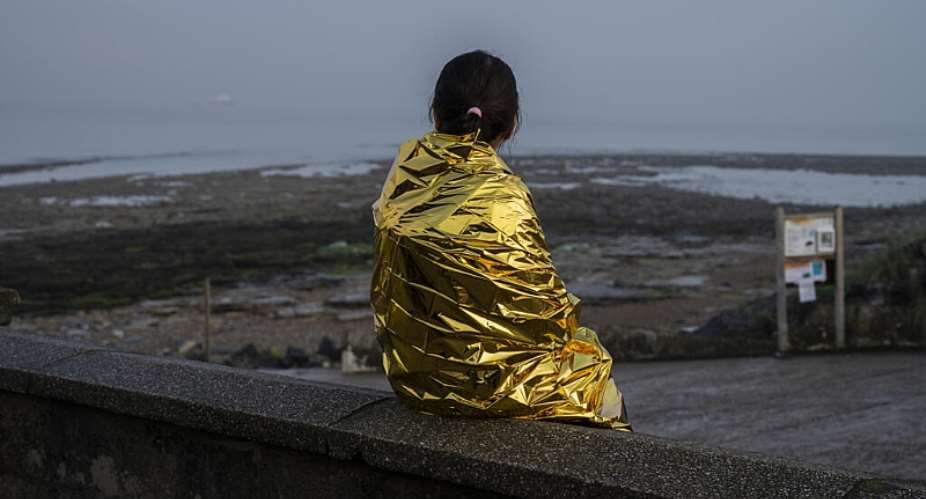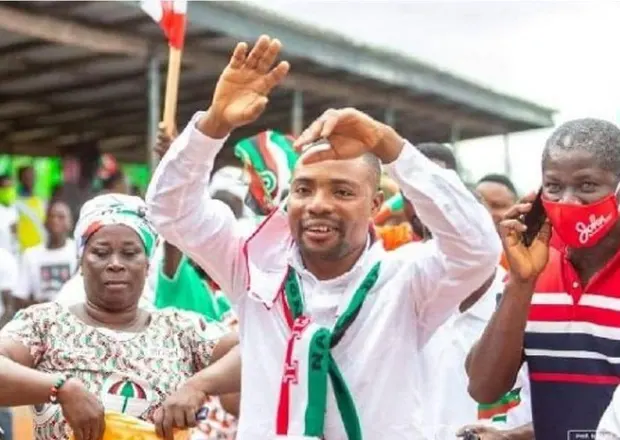The far-right has made immigration its key campaign issue in France's upcoming parliamentary elections, but how to approach asylum and migration also figures high in the manifestos of both the centrists and the left. Here's a rundown of their radically different stances.
The far-right, anti-immigration National Rally (RN) has, unsurprisingly, made combatting immigration a priority.
A leading headline on its online programme is "Stop the flood of immigrants" in which it refers to "drastically" cutting both legal and illegal immigration, and deporting "delinquent" foreigners.
Party leader Jordan Bardella says that, if elected, he will submit an "emergency law" on immigration to the lower house of parliament within weeks of the 7 July runoff.
It would include the abolition of France's "droit du sol" (jus soli), which automatically grants French nationality at 18 to people born in France to foreign parents, providing they have lived here for at least five years since the age of 11.
Under the RN, acquiring citizenship would be restricted to people born to at least one French parent. It would also be subject to strict conditions of assimilation, mastery of the French language and respect for French laws and customs.
The RN also plans to toughen conditions for family reunification and replace state medical aid for undocumented immigrants with a fund that would cover only life-threatening emergencies.
In a move that would criminalise more foreigners – and pave the way for deporting them – the RN would reinstate the offence of "illegal residency", a measure included in France's recent immigration law but then struck down as unconstitutional.
The proposed changes would be accompanied by a policy of national preference, giving French citizens priority access to housing and jobs, with welfare benefits limited to French nationals.
French people with dual nationality would be excluded from a certain number of "strategic posts", for example in defence and intelligence.
Some of the above reforms would likely require the approval of France's Constitutional Council, the court that rules on whether legislation is in line with the constitution.
Bardella said they would be put to a nationwide referendum in 2027, following the presidential election that year.
Left pledges 'dignified welcome'
At the opposite end of the spectrum, the New Popular Front (NFP) alliance – a grouping of left-wing and social-democratic parties – has put forward a dozen proposals to “ensure a dignified welcome” for foreigners.
They consist largely of repealing the 2018 and 2024 laws on asylum and immigration, which simplified procedures for expelling illegal immigrants and foreigners convicted of offences.
The NFP seeks to improve reception conditions for asylum seekers, facilitate their access to visas, and introduce a ten-year residence permit as standard.
It would provide asylum seekers with social support and allow them to work while their claims are being examined.
The NFP would guarantee access to state medical aid for undocumented migrants, and create a special status for people displaced by climate change – estimated by the World Bank to reach 1.2 billion by 2050.
It calls for the creation of a French sea and land rescue agency for migrants, while awaiting an EU-wide equivalent. Some 1,000 migrants have died trying to cross the Mediterranean since January and an estimated 30,000 over the last decade, according to medical NGO Doctors Without Borders.
The NFP also promises to uphold citizenship through jus soli – guaranteeing it in full for children born in France and making it easier to obtain.
Presidential coalition promises 'firmness' within reason
On Tuesday, President Emmanuel Macron described the NPF's policy on immigration as "totally immigrationist" – using a term more commonly deployed by far-right nativist movements to slam what are seen as open-door immigration policies.
The president's Ensemble (Together) coalition, made up of Macron's Renaissance party and several other centrist and conservative groups, is keen to show it remains tough on immigration.
"We will continue to expel from our national territory any delinquent or radicalised foreigner who represents a threat to public order," the coalition's 2024 programme read, adding that since 2017, when Macron was elected, 12,000 such people had been deported.
Ensemble promised to reduce illegal immigration for "those who see French citizenship as a set of à la carte rights" and make long-term residence permits "conditional on mastery of the French language and respect for Republican values".
Permits could be withdrawn if holders failed to respect those values.
The alliance also pledges to impose new controls on foreign unaccompanied minors, who it said "pose a security problem" in several cities.
While Macron's Renaissance party backed the EU migration pact that will set up detention centres on Europe's borders to examine asylum seekers' claims before they arrive in France, his coalition says it would continue to welcome "renowned researchers, doctors, high-potential students, just like the skilled workers our economic fabric needs".
Faced with "existential anxiety and a feeling of dispossession", Macron has presented Ensemble as a happy medium between "two extremes".
"What we are proposing is greater firmness, but within the framework of the Republic and its values," the president said during a press conference on 12 June.





 You're an illiterate, illogical; a sane person won't praise Bawumia's 'destructi...
You're an illiterate, illogical; a sane person won't praise Bawumia's 'destructi...
 NHIS was a brainchild of NDC, piloted during PNDC era; we've failed to market th...
NHIS was a brainchild of NDC, piloted during PNDC era; we've failed to market th...
 'Mahama has no respect for Ghanaians; I'm disappointed in him' — Development Eco...
'Mahama has no respect for Ghanaians; I'm disappointed in him' — Development Eco...
 King Oyanka petitions IGP: Greater Accra Regional Police accused of undermining ...
King Oyanka petitions IGP: Greater Accra Regional Police accused of undermining ...
 'It's backed by data' — Local gov't Minister clarifies his 'Ghana's poverty leve...
'It's backed by data' — Local gov't Minister clarifies his 'Ghana's poverty leve...
 TUC condemns manager for assaulting female employee at Nkawkaw over GHC90
TUC condemns manager for assaulting female employee at Nkawkaw over GHC90
 SSNIT Hotels Sale: We will continue to engage stakeholders — Director-General
SSNIT Hotels Sale: We will continue to engage stakeholders — Director-General
 Claims gov't secured debt restructuring agreement with IPPs misleading, deceptiv...
Claims gov't secured debt restructuring agreement with IPPs misleading, deceptiv...
 Koforidua SECTECH Staff dies in car crash at Somanya
Koforidua SECTECH Staff dies in car crash at Somanya
 NDC National Executive fume over suspension of ‘sexy’ Assin Central PC
NDC National Executive fume over suspension of ‘sexy’ Assin Central PC
